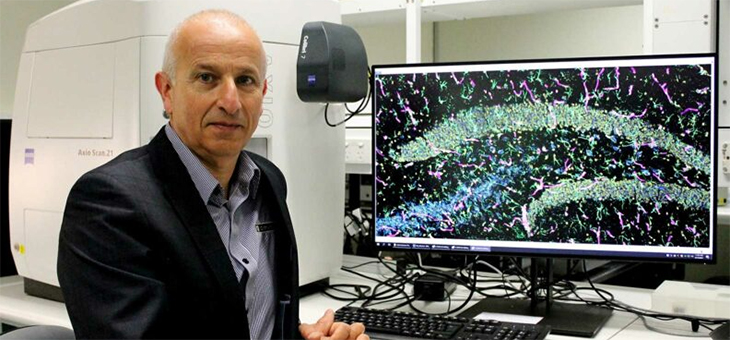One of the biggest barriers to the treatment and prevention of Alzheimer’s disease is the mystery about exactly what causes the condition, but Australian scientists have made a breakthrough discovery that could change everything.
Last week, the Australian Bureau of Statistics (ABS) revealed that deaths from dementia and Alzheimer’s disease had fallen in 2020, but they were still Australia’s second-leading cause of death behind heart disease.
In an exciting development, a Curtin University study has identified that the leakage of fat-carrying particles transporting toxic proteins from blood into the brain was a probable cause of Alzheimer’s disease.
Read: Study finds specific diet that helps older adults fight brain rot
Lead investigator Professor John Mamo said that identifying the ‘blood-to-brain pathway’ was a significant step forward in learning how to treat the condition.
“While we previously knew that the hallmark feature of people living with Alzheimer’s disease was the progressive accumulation of toxic protein deposits within the brain called beta-amyloid, researchers did not know where the amyloid originated from, or why it deposited in the brain,” Prof. Mamo said.
“Our research shows that these toxic protein deposits that form in the brains of people living with Alzheimer’s disease most likely leak into the brain from fat carrying particles in blood, called lipoproteins.
Read: Using the internet in retirement boosts brain function
“This ‘blood-to-brain pathway’ is significant because if we can manage the levels in blood of lipoprotein-amyloid and prevent their leakage into the brain, this opens up potential new treatments to prevent Alzheimer’s disease and slow memory loss.”
Prof. Mamo’s team tested the ground-breaking ‘blood-to-brain pathway’ by genetically engineering mouse models to produce human amyloid-lipoproteins in the liver.
“As we predicted, the study found that mouse models producing lipoprotein-amyloid in the liver suffered inflammation in the brain, accelerated brain cell death and memory loss,” Prof. Mamo said.
Read: Delaying retirement can help slow cognitive decline
“While further studies are now needed, this finding shows the abundance of these toxic protein deposits in the blood could potentially be addressed through a person’s diet and some drugs that could specifically target lipoprotein-amyloid, therefore reducing their risk or slowing the progression of Alzheimer’s disease.”
Alzheimer’s WA chairman, Professor Warren Harding, said the findings may have a significant global impact for the millions of people living with Alzheimer’s disease.
“In Australia, approximately 250 people are diagnosed with dementia daily, adding to the staggering half a million Australians who are already living with dementia,” Prof. Harding said.
“Without significant medical advances, such as the breakthrough Professor Mamo’s team has made, it is estimated that the number of Australians living with dementia will exceed one million by 2058.”
The Curtin University team is now conducting a trial on a cardiovascular agent that lowers lipoprotein-amyloid production and supports cognitive performance in mice.
Are you worried you might develop Alzheimer’s disease? Do you eat a healthy diet to keep your brain healthy? Why not share your thoughts in the comments section below?
If you enjoy our content, don’t keep it to yourself. Share our free eNews with your friends and encourage them to sign up.

